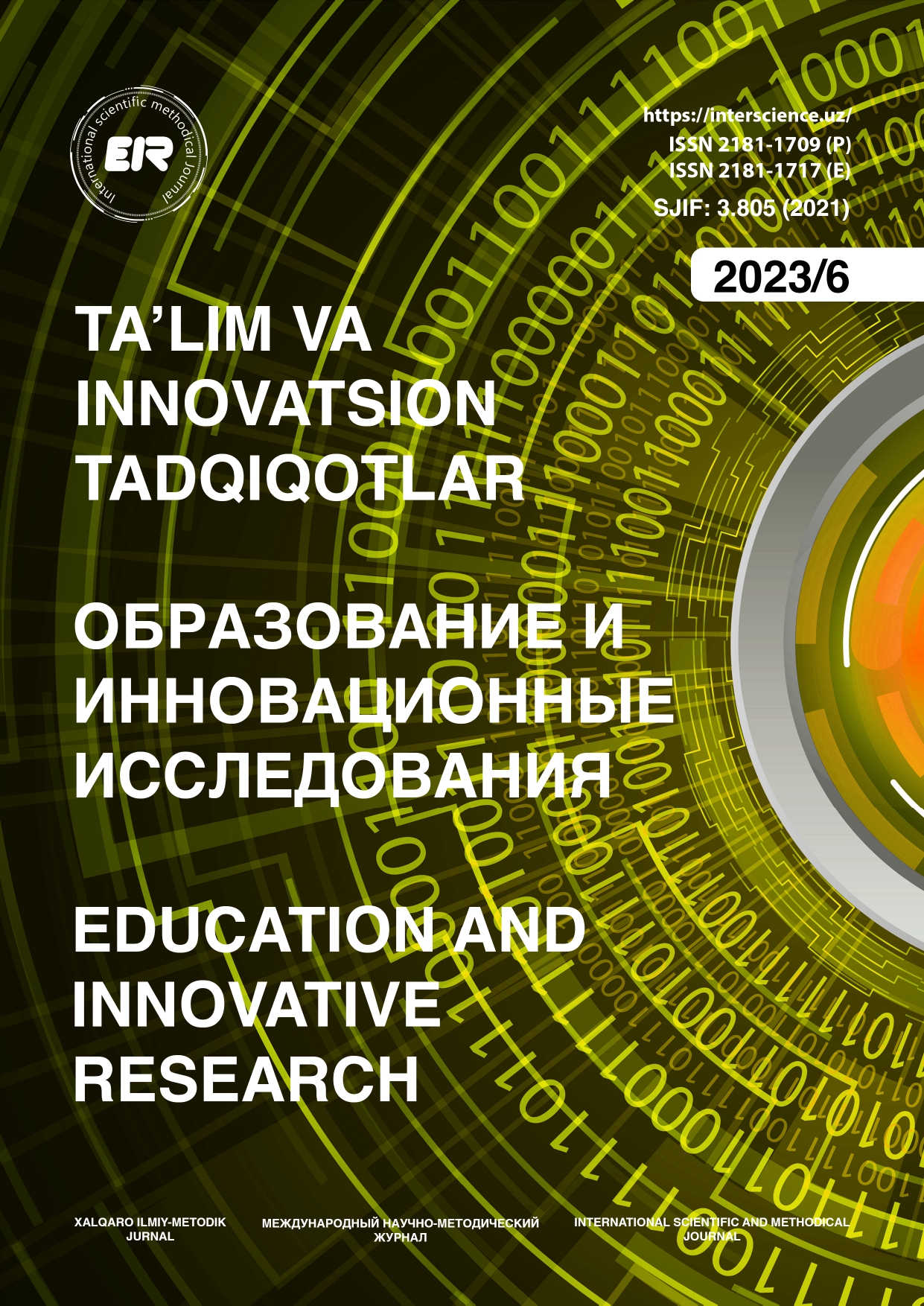PSYCHOLINGUISTIC CHARACTERISTICS OF THE DEVELOPMENT OF TEACHER’S SOCIAL INTELLIGENCE
Atakhujaeva Shakhlo Anvarovna Teacher of «Turan International University»
Keywords:
social intelligence, micro, meso and macro levels of social intelligence, communicative competence, prognostic competence, empathy, reflection, cognitive, mnemonic and empathic aspects of social intelligence, psychological types of personality.Abstract
The authors of the study developed the structure of the social intelligence of the teacher, identified and justified the psychological determinants of the development of personal qualities of teachers, the specific features of the use of cognitive activity methods by teachers that determine the high level of development. social intelligence. It was shown that the teacher’s social intelligence is a complex personal neoplasm that includes cognitive, systematic and integral structures. Systemic sub- structures are communicative and prognostic competences, which in turn include integral components, namely, foresight, decentralization, intellectual initiation, decision-making, planning, control and self- management. , includes thinking and others. Communicative competence and the ability of the teacher, which is a component of the cognitive competence of the specialist, is presented, first of all, at the micro level of social intelligence (the ability to understand and predict the impact of the cognitive competence of the teacher). the ability to generalize people’s behavior, logically important features and various non-verbal reactions of a person; the ability to understand changes in a person’s verbal reactions depending on the context of a social situation; the ability to understand the logic of the social situation that caused them. the development of situations of interpersonal interaction, the importance of the behavior of different people in these situations, as well as personal and intellectual reflection). At the same time, prognostic competence and empathy are presented at the meso level, mechanisms of anticipation, decentralization, intellectual initiative, decision-making, planning, control and self- management, reflection, etc., which ensure the functioning of social intelligence, macro level.
References
Avlaev O. U. Gender differences of social intelligence in student development. Scientific journal «Psychology». 2021. № Pages 1, 34-41.
Авлаев, О. У., & Бутаева, У. А. (2021). Талаба пcихологик камолоти масаласи. Academic research in educational sciences, 2(5), 4-11.
Авлаев, О. У. (2021). Талабалар камолотида ижтимоий интеллектнинг гендер фарклари.«.
PSIXOLOGIYA» ILMIY JURNAL, 3441.
Avlaev, O. U. (2020). The role of social intelligence in personal development. Association with Novateur Publication India’s A Multidisciplinary Peer Reviewed Journal, 692-698. 4. Mamatkulov, H.A., Mamatkulova, Z. G., & Avlaev, O. (2020).
Atakhujaeva Sh.A https://cyberleninka.ru/article/n/self-destructive-behavior-and-its-essence Pedagogik ta’lim klasteri: muammo va yechimlar 371-375 b
Usarov J. D. Khimmataliev, N. Kuvvatova, Sh. Atakhujaeva, N. Akbarova https://www. researchgate.net/publication/363199405_Pedagogical_competence 174-175b
DIAGNOSIS OF ADOLESCENTS’ UNDERSTANDING OF MORAL AND LEGAL FORMS Author Shahlo Anvarovna AtakhujaevaVol. 1 No. 4 (2022): INTERNATIONAL СONFERENCE ON LEARNING AND TEACHING 2022/4 156-165.





